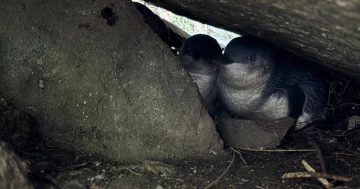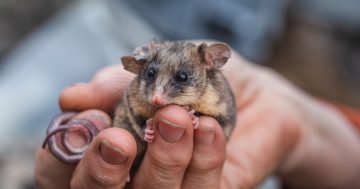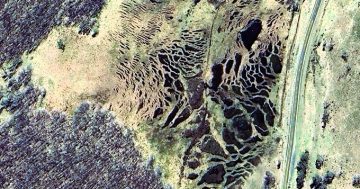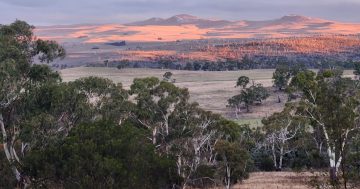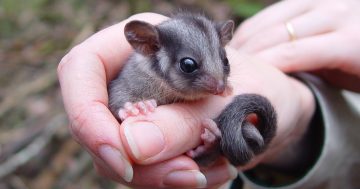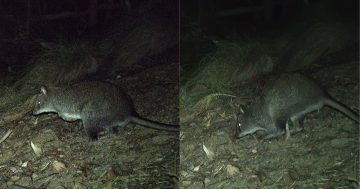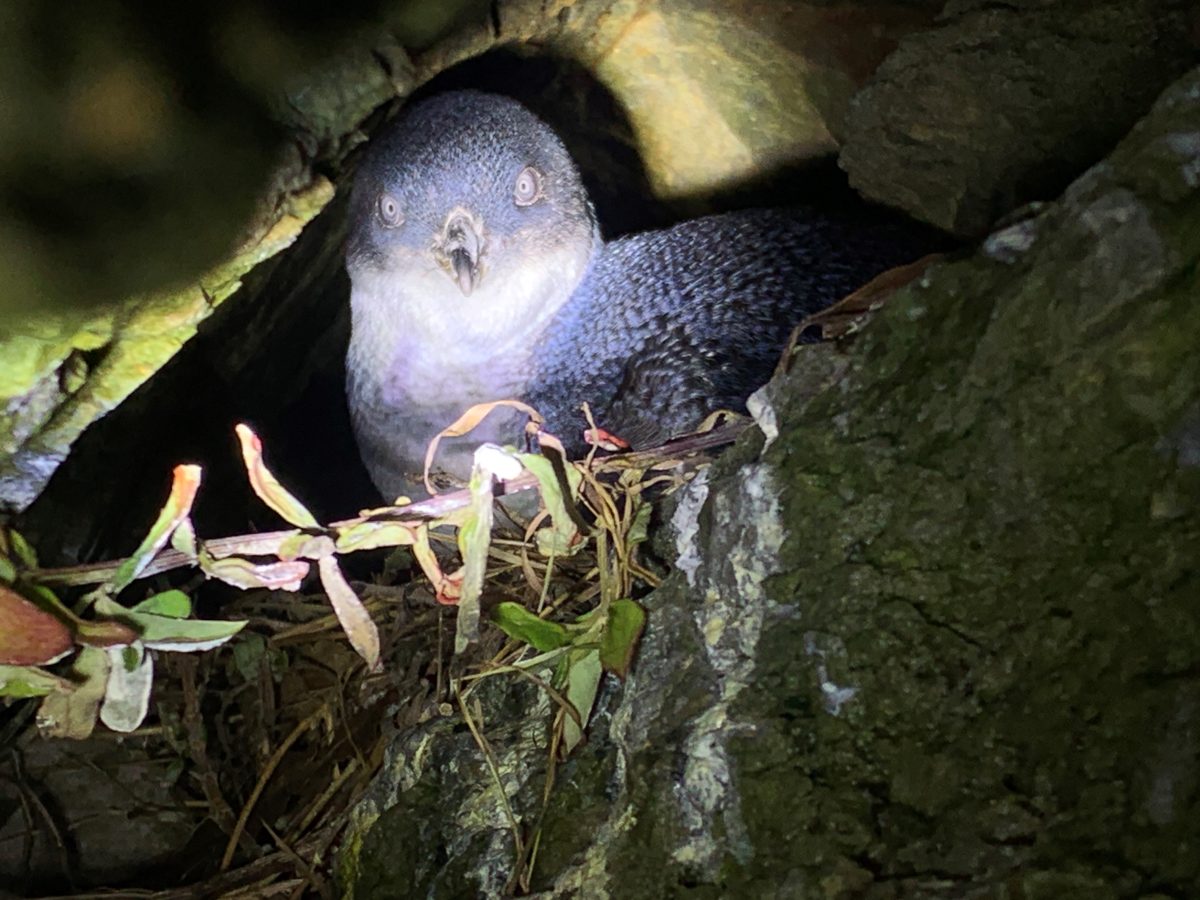
A Little Penguin mother made her nest in Twofold Bay to hatch a chick in October 2023 – and there’s been recent developments at the site. Photo: NSW Department of Planning and Environment.
When a Little Penguin climbed into a box on the NSW Far South Coast to moult, it wouldn’t have realised its action would be a big deal to scientists.
Senior research scientist and penguin expert with the NSW Department of Climate Change, Energy, the Environment and Water Nicholas Carlile said the discovery was a welcome surprise.
“It was a bit cranky when someone opened the box lid to check on it, but we had to verify that it was in there,” he said.
Mr Carlile said finding the shed feathers was the latest sign that attempts to restore the mainland’s penguin population was underway at Eden’s Wheel Cove.
Eden had a breeding colony at Twofold Bay, before the population became extinct in the 1990s.
“Penguins don’t always go back to their colonies to moult, but this bird has felt so comfortable there that it wanted to go back there [to Wheel Cove] for a couple of weeks until its moult was finished and it could go back to sea,” Mr Carlile said.
Each year, Little Penguins undergo a ‘catastrophic moult’ where they shed 10,000 feathers before regrowing a new set over a period of around 14 days.
“Little Penguins can’t moult their feathers in the sea because they’re in the water and they get too cold, so they have to come ashore,” he said.
“It came back to Wheel Cove and went into an artificial nest box that was down there.”
And while the word ‘catastrophic’ might make you worry for the poor penguin, Mr Carlile was quick to reassure.
“It’s a natural process – they just push out the old feathers with the new feathers,” he said.
“It’s quite an involved process, and it’s called a catastrophic moult because it all happens at once.”
In October 2023, a baby penguin hatched at the re-established colony was more than a fluffy chick – it was the first Little Penguin known to be born in Eden after 30 years.
And while Mr Carlile believes the moulting penguin is one of the chick’s parents, the baby wasn’t with it.
That’s because penguin chicks head out into the world soon after they’re born.
“Penguins have a pretty tough life,” Mr Carlile said.
“Like all ocean-going seabirds, once the chick fledges, it is totally on its own.
“It went to sea and didn’t even know what the sea was, and didn’t know what food was.”
Mr Carlile said it would take about two years until the researchers knew if that chick made it.
“They actually have to go to sea and learn what food is and what the water is and all those things, before they come back to breed,” he said.
“It’s usually quite low return rates – generally it’s about 10 per cent of penguins that fledge on an island that will come back to breed.
“It’s a tough life for the chicks, but once they reach adulthood, it’s not so bad!”
However, Mr Carlile was hopeful the adult Little Penguins would return later in 2024 for another breeding season.
In the meantime, a group is working to make Eden a more attractive spot for Little Penguins in their breeding season.
The group is called HELP (Helping Eden’s Little Penguins), and they have put the call out for new members.
“They were established to support the work of National Parks and Wildlife to help manage this species,” he said.
“There’s lots of things people can do [in the group], depending on their abilities.
“Everybody has something to offer.”
The group has a range of activities, he said, such as raising awareness in their communities of the Little Penguins, clearing weed growth that would affect the Little Penguins at Wheel Cove and checking a fox-proof fence in the area is secure.
Mr Carlile said conservation efforts for the Little Penguins went beyond restoring them to the Far South Coast of NSW.
“To get people to understand that having these birds is a special thing would be a really important thing,” he said.
“For most of the public, sea birds are ‘out of sight, out of mind’, because most breed on offshore islands and you can’t get to these.
“To have some penguins breeding on the mainland in Eden allows us to focus our minds a little bit on the needs of sea birds.
“That’s really a good thing because they’re unique animals in an amazing environment, and they can tell us lots of things about our marine environment and how it’s travelling.”
Those interested in becoming a member of HELP can email [email protected] for more information.







